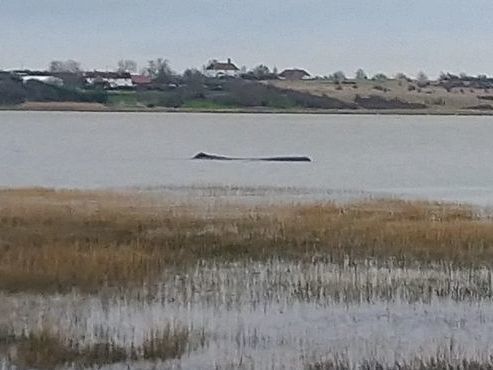Sperm whale dies after three-day struggle in Thames estuary
Rescuers monitored ‘distressed and confused’ animal off coast of Whitstable

Your support helps us to tell the story
From reproductive rights to climate change to Big Tech, The Independent is on the ground when the story is developing. Whether it's investigating the financials of Elon Musk's pro-Trump PAC or producing our latest documentary, 'The A Word', which shines a light on the American women fighting for reproductive rights, we know how important it is to parse out the facts from the messaging.
At such a critical moment in US history, we need reporters on the ground. Your donation allows us to keep sending journalists to speak to both sides of the story.
The Independent is trusted by Americans across the entire political spectrum. And unlike many other quality news outlets, we choose not to lock Americans out of our reporting and analysis with paywalls. We believe quality journalism should be available to everyone, paid for by those who can afford it.
Your support makes all the difference.A sperm whale has died after becoming stranded in the Thames estuary in Kent.
The mammal was first spotted in the river around 100 metres from the coastline near Whitstable on Thursday.
It was later seen moving up and down the channel between north Kent and the Isle of Sheppey.
The whale was monitored by the British Divers Marine Life Rescue (BDMLR), which described it as appearing “distressed and confused”.
“We do believe that at times it has been grounded while still being supported in water, when the tide has been at the lowest point over the past couple of days,” the group said on its Facebook page.
“The whale was still swimming but movements were not smooth and it did appear to be distressed and confused, changing directions but not travelling far.
“There was also evidence of slight injury to the animal’s head but nothing significant.”
HM Coastguard and the Marine Police Unit continued to monitor the whale until it was found dead on Saturday morning.
“Unfortunately it had fully stranded and died,” the BDMLR said in an update to its followers on Facebook.
The whale carcass will be recovered for further investigation as part of the Cetacean Stranding Investigation Programme.
While sperm whales are not commonly seen in British waters, around 600 cetaceans - whales, dolphins and porpoises - are found stranded around the UK coastline every year.
Earlier this month a killer whale was found washed up with plastic in its stomach in the Wash, a bay between Lincolnshire and Norfolk.
Three whales were found dead in the River Thames in a two month period last year.
Join our commenting forum
Join thought-provoking conversations, follow other Independent readers and see their replies
Comments